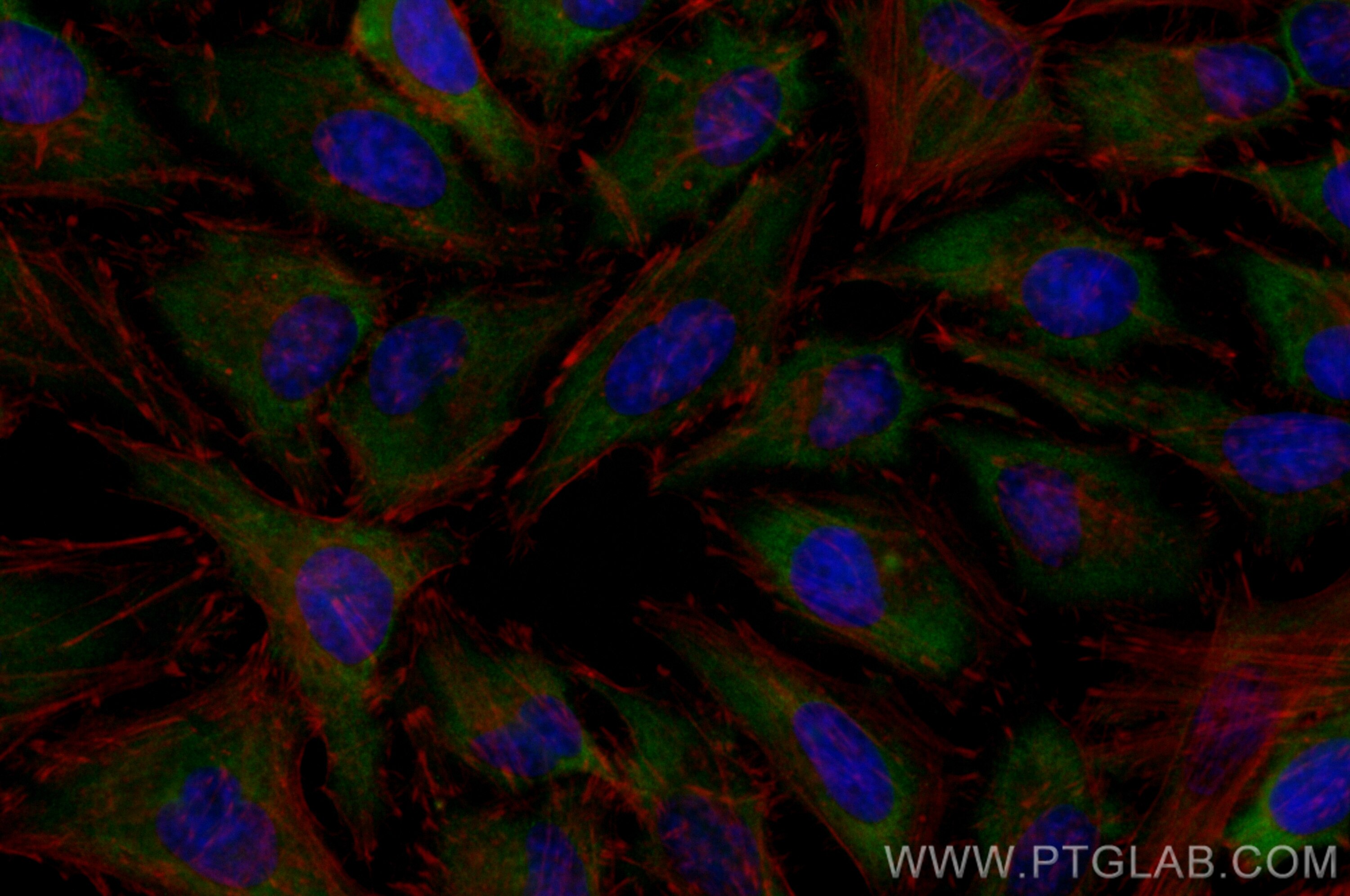Tested Applications
| Positive IF/ICC detected in | HeLa cells |
Recommended dilution
| Application | Dilution |
|---|---|
| Immunofluorescence (IF)/ICC | IF/ICC : 1:50-1:500 |
| It is recommended that this reagent should be titrated in each testing system to obtain optimal results. | |
| Sample-dependent, Check data in validation data gallery. | |
Product Information
CL488-24790 targets GIGYF2 in IF/ICC applications and shows reactivity with human, mouse samples.
| Tested Reactivity | human, mouse |
| Host / Isotype | Rabbit / IgG |
| Class | Polyclonal |
| Type | Antibody |
| Immunogen | GIGYF2 fusion protein Ag20329 Predict reactive species |
| Full Name | GRB10 interacting GYF protein 2 |
| Calculated Molecular Weight | 1320 aa, 152 kDa |
| Observed Molecular Weight | 150-170 kDa |
| GenBank Accession Number | BC146775 |
| Gene Symbol | GIGYF2 |
| Gene ID (NCBI) | 26058 |
| RRID | AB_3672773 |
| Conjugate | CoraLite® Plus 488 Fluorescent Dye |
| Excitation/Emission Maxima Wavelengths | 493 nm / 522 nm |
| Form | Liquid |
| Purification Method | Antigen affinity purification |
| UNIPROT ID | Q6Y7W6 |
| Storage Buffer | PBS with 50% glycerol, 0.05% Proclin300, 0.5% BSA, pH 7.3. |
| Storage Conditions | Store at -20°C. Avoid exposure to light. Stable for one year after shipment. Aliquoting is unnecessary for -20oC storage. |
Background Information
GIGYF2 (GRB10 interacting GYF protein 2) was initially identified through its interaction with GRB10, an adapter protein that binds activated INS-like growth factor (IGF-I) and INS receptors (PMID: 12771153; 19744960). It may act cooperatively with GRB10 to regulate tyrosine kinase receptor signaling. The gene of GIGYF2 has been proposed as the Parkinson-disease (PD) gene underlying the PARK11 locus (PMID: 18358451).
Protocols
| Product Specific Protocols | |
|---|---|
| IF protocol for CL Plus 488 GIGYF2 antibody CL488-24790 | Download protocol |
| Standard Protocols | |
|---|---|
| Click here to view our Standard Protocols |



